News
NNPCL, Heirs Energies Sustains Gas Supply To Geometric Power
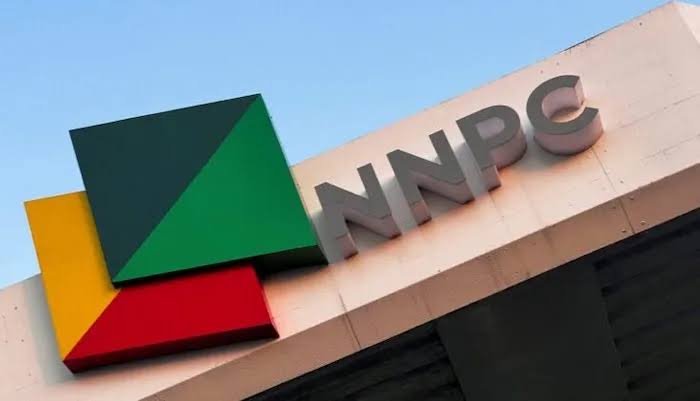
NNPCL, Heirs Energies Sustains Gas Supply To Geometric Power
Heirs Energies, an indigenous oil and gas firm working with the Nigerian National Petroleum Company Ltd (NNPCL) which took over the ownership and operations of Oil Mining Lease (OML) 17 from The Shell Petroleum Development Company (SPDC), have sustained gas supply to Geometric Power which has resulted to uninterrupted electricity supply to the Company’s network area.
To this end the Aba Power Electricity Limited has achieved an other 45 days of uninterrupted power supply to its customers.
Electricity consumers in the Southeast geopolitical zone affirmed this laudable achievement which has boosted businesses in the Aba Ring-fenced Area of Abia State.
Aba Power provides electricity to nine of the 17 local government areas (LGAs) in Abia State known as the Aba Ring-fence.
“As Geometric Power Ltd, the owner and operator of the 188-megawatt thermal plant in the Osisioma Industrial Layout of Aba, marks yet another 45 days of uninterrupted electricity”, declared the Southeast zone of the Electricity Consumers Association of Nigeria (ECAN) in a statement in Awka, Anambra State. “We commend Aba Power for delivering the entire electricity generated by the plant to our people and industries faithfully”.
The statement signed by Engr Joe Ubani, the ECAN chairman in the Southeast, and Comrade Chris Okpara, the secretary, attributed the steady supply in almost two months to uninterrupted natural gas supply to the plant.
“Our investigation shows that gas supply has been steady”, said the statement.
“This shows that Heirs Energies, an indigenous oil and gas firm working with the Nigeerian National Petroleum Company Ltd (NNPCL) which took over the ownership and operations of Oil Mining Lease (OML) 17 from The Shell Petroleum Development Company (SPDC), has been grappling with operational challenges to the admiration of all”.
Heirs Energies supplies natural gas to the 188MW Geometric Power Plant from its gas facilities in Owaza in Ukwa West Local Government Area of Abia State through a 27-kilometre gas pipeline built by the Geometric Power group at $50m.
ECAN explained that the gas facilities recorded technical depreciation before Heirs Energies and the NNPCL acquired them because the SPDC stopped investments in them following a protracted case in Court between Shell and the Federal Government when the immediate past federal administration declined to renew SPDC’s lease.
“We are delighted that Heirs Energies, alongside NNPCL, is building up capabilities, indicating what Nigerian corporate entities, entrepreneurs and professionals can do if given the opportunity”, ECAN added.
The association of electricity consumers stated that the steady gas supply from Heirs Energies in recent weeks which has resulted in constant power supply to the Aba Ring-fence by Aba Power led Governor Alex Otti of Abia to declare that “in Aba we have gone beyond this problem” when he was speaking at the graduation ceremonies of the Abuja School of Social and Political Thought and public power to the venue suddenly went off almost two weeks ago.
“Our advice to the Nigerian authorities”, continued ECAN, “is to take a look at what the Geometric Power Group has been doing and borrow a leaf from it, so that the rest of the country can enjoy uninterrupted, quality, and affordable electricity.
“It is heartwarming that the Minister of power, Chief Adebaya Adelabu, is already going in this direction, and we urge all Nigerians to support him”.
News
Senator Eteng Williams Attends 9th Nigeria International Energy Summit in Abuja
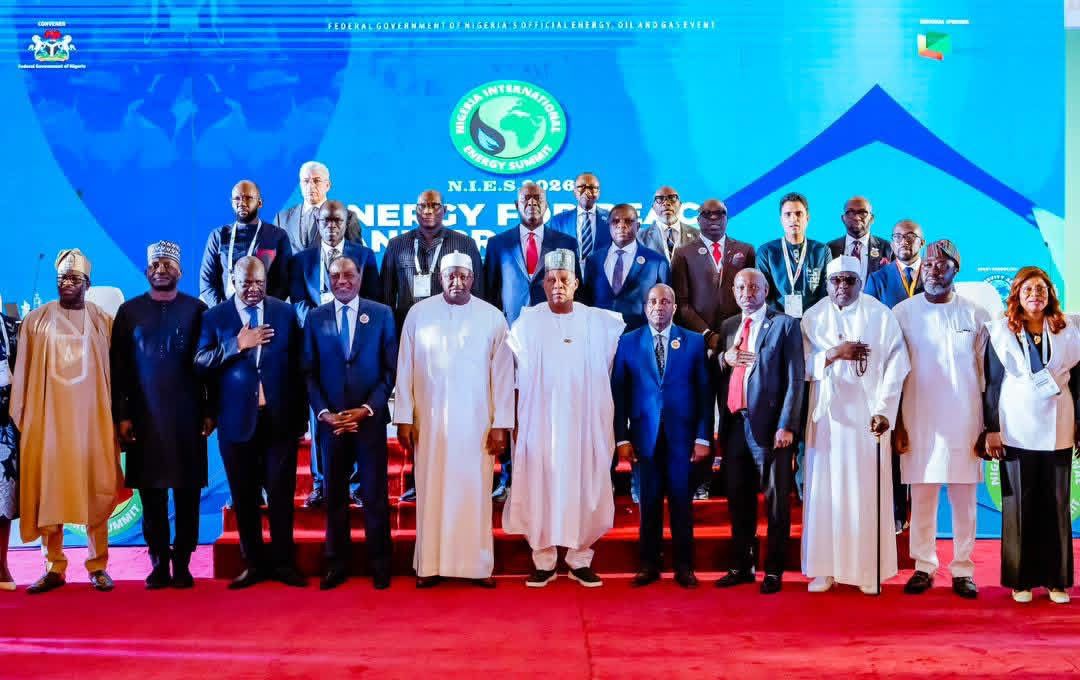
Senator Eteng Williams Attends 9th Nigeria International Energy Summit in Abuja
The Chairman, Senate Committee on Petroleum Resources (Upstream), Senator Eteng Williams, on Tuesday attended the 9th edition of the Nigeria International Energy Summit (NIES 2026) held at the State House Conference Centre, Abuja.
The Nigeria International Energy Summit (NIES), the official energy event of the Federal Government of Nigeria, remains Africa’s premier platform for energy policy dialogue, investment promotion, and innovation. The summit facilitates high-level engagement among ministers, regulators, industry leaders, and chief executives shaping Africa’s evolving energy landscape.
The summit was formally opened by President Bola Ahmed Tinubu, GCFR, who was represented by the Vice President, Senator Kashim Shettima. The Vice President also welcomed President Adama Barrow of the Republic of The Gambia to the 9th edition of the summit.
Declaring the summit open, President Tinubu emphasized the strategic importance of energy to global peace, prosperity, and stability. He noted that Nigeria is prioritizing the optimal utilization of its vast natural gas reserves as a transition fuel while expanding its renewable energy capacity.
“Energy must unite communities, stabilize economies, and secure futures. It must power factories, illuminate homes, fuel innovation, and build trust between government, investors, and citizens,” the President stated.
“Nigeria stands ready to collaborate with Africa, global partners, and the private sector to deliver energy that is secure, affordable, cleaner, and inclusive.”
In his remarks at the summit, Senator Eteng Williams underscored the need for Nigeria to remain focused on building investor confidence through the full and effective implementation of the Petroleum Industry Act (PIA). He stressed that this must be supported by strong, transparent, and predictable regulatory institutions to attract sustainable investments into the upstream sector.
The NIES 2026 attracted heads of delegation and senior government officials from across the globe, leaders of international energy organizations, chief executives of global and indigenous energy companies, development finance institutions, and representatives of host communities.
Other notable dignitaries in attendance included President Teodoro Obiang Nguema Mbasogo of Equatorial Guinea (represented), the Minister of State for Petroleum Resources (Oil), Senator Heineken Lokpobiri, the Minister of State for Petroleum Resources (Gas), Ekperikpe Ekpo, the Group Chief Executive Officer of the Nigerian National Petroleum Company Limited (NNPC Ltd.), Mr. Bayo Ojulari, and the Chairman of the Independent Petroleum Producers Group (IPPG) and Managing Director of Aradel Holdings, Mr. Adegbite Falade.
News
TotalEnergies Reaffirms Commitment To Local Content Development
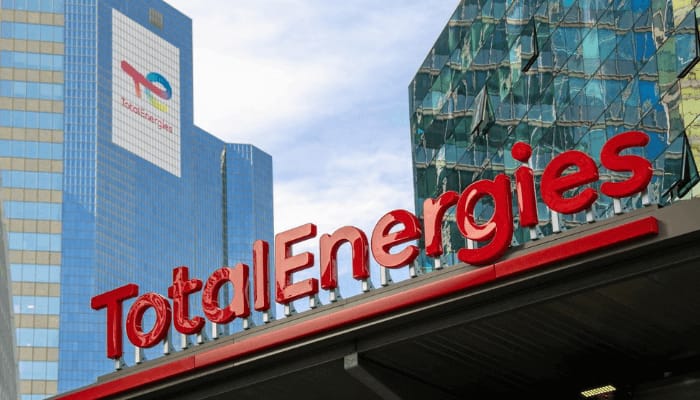
TotalEnergies Reaffirms Commitment To Local Content Development
TotalEnergies has reaffirmed its commitment to continuously improve initiatives that will improve on its local content delivery.
Speaking at the 9th Nigerian International Energy Summit, Mr. Cyprian Ojum, Deputy General Manager, Nigerian Content, TotalEnergies, emphasized that local content is a strategic priority, not just a compliance checkbox.
He stated that the Nigerian Oil and Gas Industry Content Development Act of 2010 is clear: every operator must treat local content as an operating philosophy, focusing on retaining value locally.
“This week, we are discussing content as a strategic priority. We are here to tell a story, one that centers on local consciousness. This is not about ticking a compliance checkbox or fulfilling a political obligation. It is about having a deliberate plan”
“The Nigerian Oil and Gas Industry Content Development Act of 2010 is very clear, every operator, alliance partner, project promoter, contractor, or any entity involved in monitoring the oil and gas industry in Nigeria must treat local content as an operating philosophy”
“From the moment a project is conceived, the key question becomes: what quantity of value will be retained locally at the end of this project? That is precisely how local content is defined under the 2010 Act. Project design must therefore be driven by value retention”.
“This is why, at the early stages of our projects, we engage in extensive iterations with the SDLD. We make multiple visits to the NCDMB and sit with the Project Certification and Operations Department to review and refine our Nigerian Content Plan.”
“As mentioned earlier, the Act covers 17 service categories and over 300 subsections, each with clearly defined minimum and maximum local content thresholds. Whether the activity involves fabrication, construction, procurement, installation, transportation, drilling, mud services, or other operations, there are specific percentages that must be achieved, he said.
Ojum emphasized that local content is not just about compliance, but about building expertise and retaining value in-country. He cited the Agena project as an example of successful capacity building and value creation.
“Beyond value retention, Sections 10, 27, 28, 29, and 30 of the Act emphasize training Nigerians and developing capacity. For us, performance-driven local content is anchored on capacity building”.
“Take the Agena project as an example. Capacity development was deliberately built into the project through infrastructure investment. When LADOL and the Samsung–LADOL collaboration were referenced earlier, that speaks directly to TotalEnergies’ commitment.The largest FSO in Nigeria was delivered through this project”
“Within the Agena project alone, about 200 Nigerians were trained in critical skills that are actively deployed across the industry today not only within TotalEnergies, but also across other companies.
“Today, Agena contributes nearly 10 per cent of TotalEnergies’ global production. That level of impact underscores the scale of value created in Nigeria”, he said.
He explained that Total Energies’ approach includes: Human Capacity Development, designed to respond to industry needs, focusing on sustainability.
Value retention, by prioritizing local value creation and retention, and collaboration, this is done by working with local contractors and NCDMB to meet local content thresholds.
Ojum said TotalEnergies has achieved significant success in local content development, with its IKAN project reaching 95 per cent Nigerian content.
Highlighting the company’s commitment to building expertise and retaining value in the country,Ojum emphasized that Nigerians can deliver complex oil and gas projects to international standards, citing the IKAN project’s success, adding that the Ubata project aims to further push local content boundaries.
Ojum’s remarks highlight the importance of local content in driving Nigeria’s energy industry growth and sustainability.
News
UK Energy Watchdog Dismisses Dirty Petrol Import Allegations Against Dangote
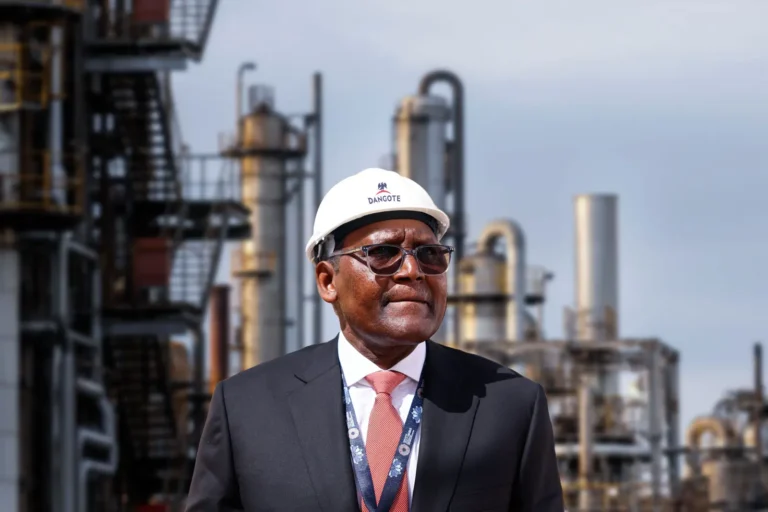
UK Energy Watchdog Dismisses Dirty Petrol Import Allegations Against Dangote
An independent investigation by a United Kingdom-based energy watchdog, Impact Investigators Platform (IIP), has come up with its findings dismissing recent media claims that the Dangote Petroleum Refinery imported substandard petrol into Nigeria.
The organisation after its investigation described the allegations as “technically inaccurate, commercially implausible, and unsupported by verifiable evidence.”
The investigations finds no dirty fuel In a detailed report signed by its lead investigator, Raymond Neil, and released on Friday, in which it confirmed that its independent review of shipping manifests, customs declarations, and refinery process documentation found no indication that Dangote Refinery imported or sold finished petrol exceeding Nigeria’s sulphur limit of 50 parts per million (ppm).
The IIP said it launched an independent probe following viral reports alleging that a vessel delivered high-sulphur petrol to the refinery disguised as locally produced fuel.
However, Neil clarified that the shipment in question was not a finished fuel product but an intermediate feedstock — a common raw material used globally by refineries to optimise production. “Our analysis confirms that the shipment being referenced was a blending component, not a finished petrol product,” Neil stated.
“It was imported strictly for refinery processing and never intended for direct sale to consumers.” According to Neil, refineries worldwide, in Europe, Asia, and the Middle East, routinely import intermediate streams such as high-sulphur catalytic gasoline or straight-run naphtha to balance their production yields. “This is normal industry practice,” he emphasised, “and it does not imply that substandard fuel is being sold to the public.”
The IIP report confirmed that all Dangote Refinery import documentation and clearances were consistent with the regulations of both the Nigeria Customs Service (NCS) and the Nigerian Midstream and Downstream Petroleum Regulatory Authority (NMDPRA).
The refinery, which operates under a Free Trade Zone licence, is authorised to import intermediate materials for processing, all of which must undergo refining before entering the domestic market.
Neil further explained that the IIP’s assessment involved verifying laboratory test results, refinery utilisation records, and port inspection certificates in both the UK and Nigeria.
None of the reviewed evidence, he said, supported the claim that Dangote imported petrol ready for public consumption. “The sulphur levels cited in those reports belong to intermediate-grade gasoline, not finished petrol. To suggest otherwise is to misunderstand refinery operations,” Neil clarified.
Neil warned that misinformation on technical matters could damage public confidence in Nigeria’s biggest industrial project.
“The Dangote Refinery is a strategic national asset,” he said. “Public debate must be guided by facts, not conjecture.”
The IIP also urged Nigerian authorities to establish a rapid-response verification mechanism to counter unverified claims about refinery operations. Transparency requires both openness and accurate interpretation of data,” Neil noted.
The report further praised the refinery’s strong compliance and audit culture, stating that its internal systems meet the standards of the European Refining Association and the American Petroleum Institute.
“Every product stream leaving the refinery is certified by an ISO-accredited lab,” Neil revealed. “These certificates are regularly submitted to the NMDPRA before any domestic dispatch.” Verdict:
Concluding the investigation, the UK-based watchdog reaffirmed that Dangote Refinery did not import dirty fuel and operates within global best practices. “Our findings show a refinery engaged in legitimate global trade, committed to delivering cleaner fuels that meet international standards,” Neil declared.
-
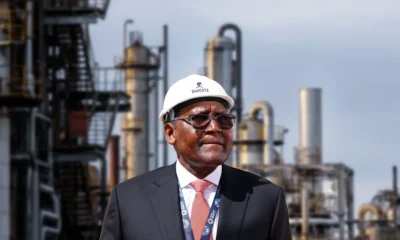
 News4 months ago
News4 months agoUK Energy Watchdog Dismisses Dirty Petrol Import Allegations Against Dangote
-
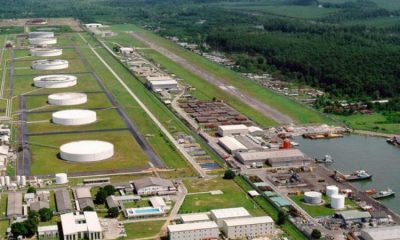
 News4 months ago
News4 months agoGas Operators Raises Fear Of Weak Domestic Demand
-
Uncategorized4 months ago
Hello world!
-
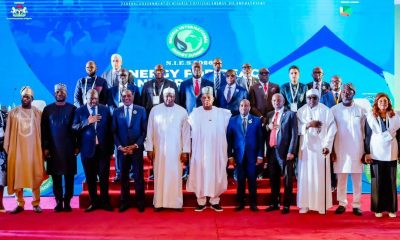
 News1 week ago
News1 week agoSenator Eteng Williams Attends 9th Nigeria International Energy Summit in Abuja
-
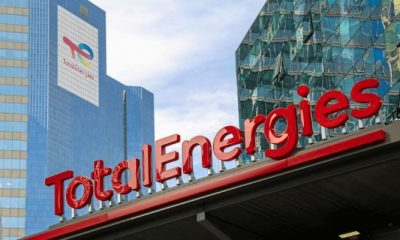
 News1 week ago
News1 week agoTotalEnergies Reaffirms Commitment To Local Content Development
